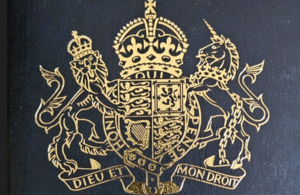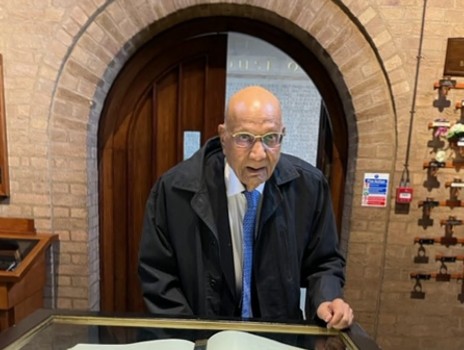Officials say the reforms will be supported by new technology, including the introduction of artificial intelligence systems to cut back on paperwork…reports Asian Lite News
Criminals could be barred from pubs, concerts and sporting fixtures under a major overhaul of community sentencing powers announced by the Government on Sunday.
The reforms, unveiled as part of the Government’s so-called “Plan for Change”, will give judges sweeping new authority to impose restrictions on offenders, including travel bans, driving limits and geographical exclusion zones confining individuals to specific areas.
Ministers argue that the changes are designed to toughen up community punishments, deter reoffending and provide new ways to keep offenders “on the straight and narrow”.
Under the new powers, criminals serving community sentences will face limits on where they can go, with bans potentially covering a wide range of venues and activities. Unlike current rules, which allow for narrowly applied bans such as football restrictions linked to stadium-related offences, the law will be rewritten to let judges impose such penalties for any crime in any circumstance.
The reforms will also extend to those leaving prison. Offenders under probation supervision could find themselves subject to the same restrictions, alongside an expanded programme of mandatory drug testing. In future, testing will no longer be confined to those with known substance abuse histories but will apply to a wider group of offenders.
Those who fail to comply with these conditions risk being brought back before the courts or returned to custody, depending on their sentence.
Announcing the reforms, Lord Chancellor and Justice Secretary Shabana Mahmood said the measures would strengthen punishments and reassure the public that crime is being taken seriously.
“Widening the range of punishments available to judges is part of our Plan for Change to cut crime and make streets safer,” she said. “When criminals break society’s rules, they must be punished. Those serving their sentences in the community must have their freedom restricted there too. These new punishments should remind all offenders that, under this Government, crime does not pay. Rightly, the public expect the Government to do everything in its power to keep Britain safe, and that’s what we’re doing.”
The announcement is part of a broader package of reforms to sentencing and the criminal justice system, as ministers grapple with rising prison populations and ongoing concerns about reoffending rates.
Since July 2024, more than 2,400 new prison places have opened, with the Government committing £7 billion to build a total of 14,000 additional spaces. Officials say the expansion is aimed at ensuring prisons never again reach capacity, particularly for violent and dangerous offenders.
At the same time, ministers are pledging to strengthen the Probation Service, which has faced mounting pressures in recent years following staff shortages, rising caseloads and a series of high-profile cases where offenders under supervision went on to commit serious crimes.
The Government confirmed on Sunday that investment in the Probation Service will rise by up to £700 million by 2028–29, increasing its annual budget from around £1.6 billion to £2.3 billion.
The service has already seen modest growth in its workforce over the past year. Figures released this week show the number of qualified probation officers rose by 7 per cent in the last 12 months, while trainee numbers increased by 15 per cent. A recruitment drive is also under way to hire a further 1,300 probation staff this year, building on the 1,000 trainees recruited in 2024.
Officials say the reforms will be supported by new technology, including the introduction of artificial intelligence systems to cut back on paperwork. The aim is to ease the administrative burden on probation staff so they can spend more time directly monitoring high-risk offenders.
The proposals are likely to provoke debate over the balance between punishment and rehabilitation. Critics of tougher community restrictions have previously argued that measures such as curfews and exclusion zones can hinder rehabilitation and risk pushing offenders further to the margins of society.
However, ministers insist the new powers will be an essential tool to reduce reoffending and protect the public. By tightening controls on offenders both inside and outside prison, the Government hopes to reassure communities that justice is being served.
The Ministry of Justice has not yet set a date for when the legislation will be introduced, but it confirmed that the changes will be brought forward “shortly”.
For now, the message from ministers is clear: offenders will face tougher restrictions on their freedoms whether they are behind bars or serving sentences in the community, in what the Government says is a renewed effort to “make Britain safer”.














